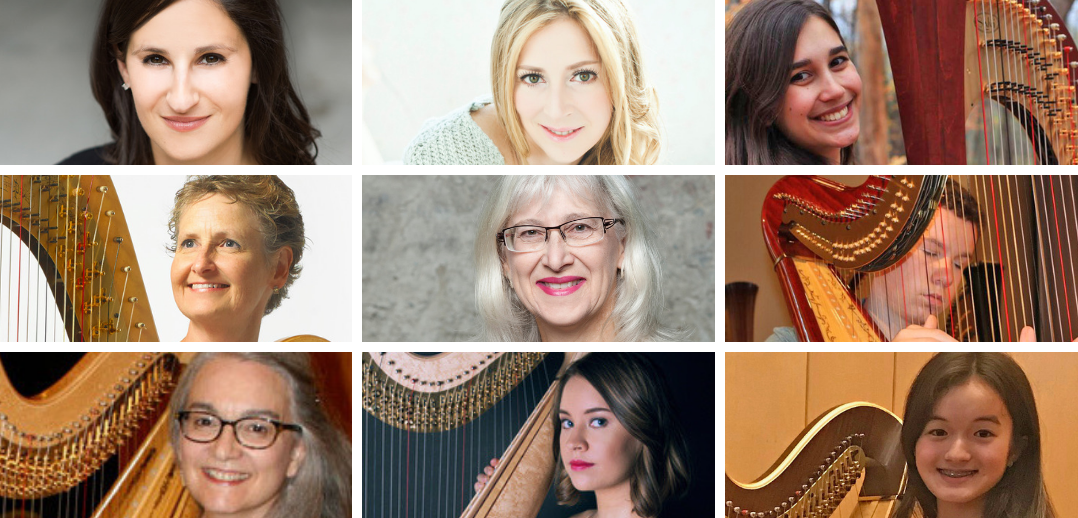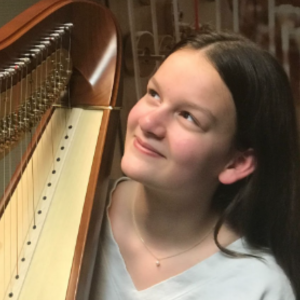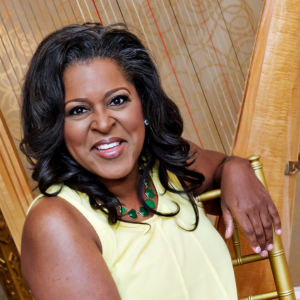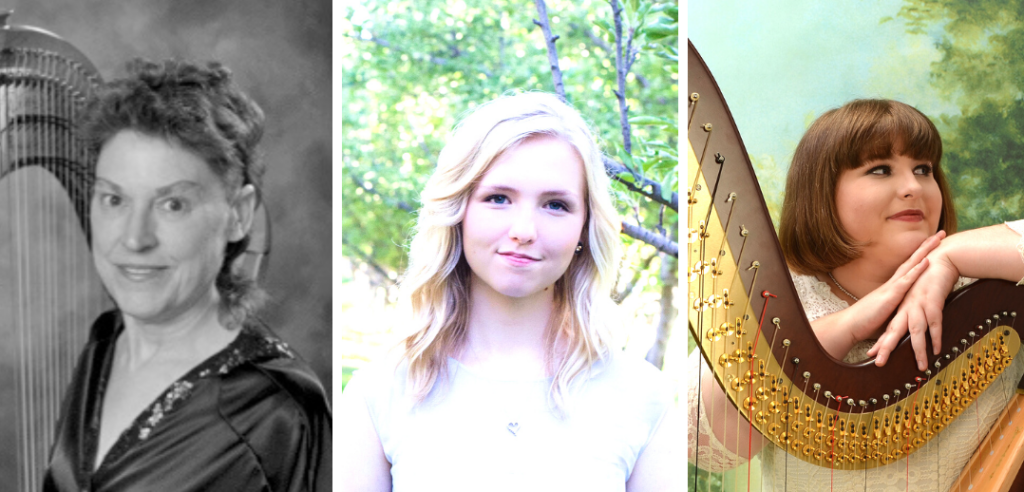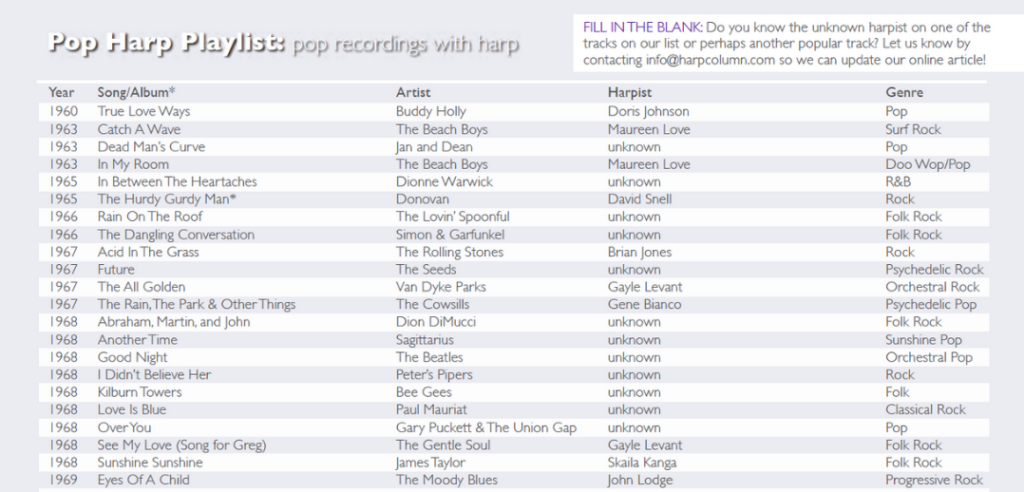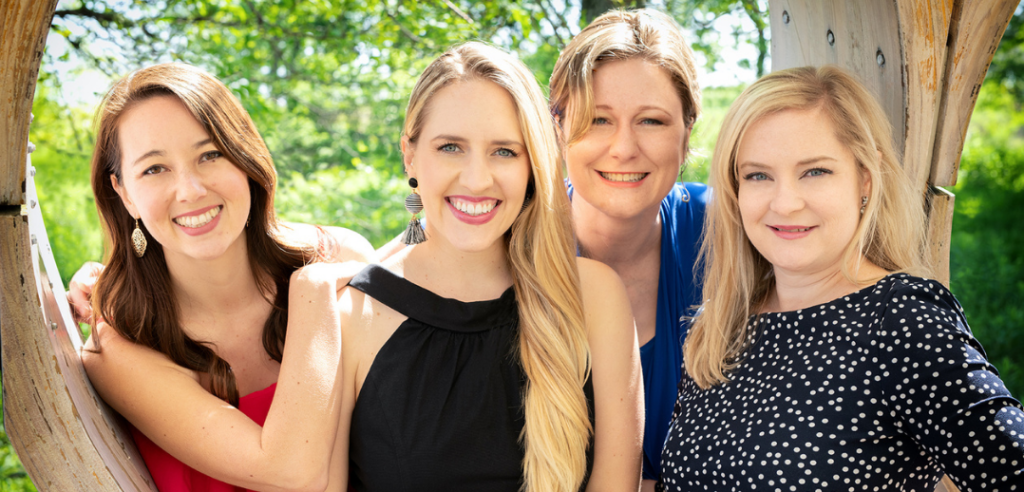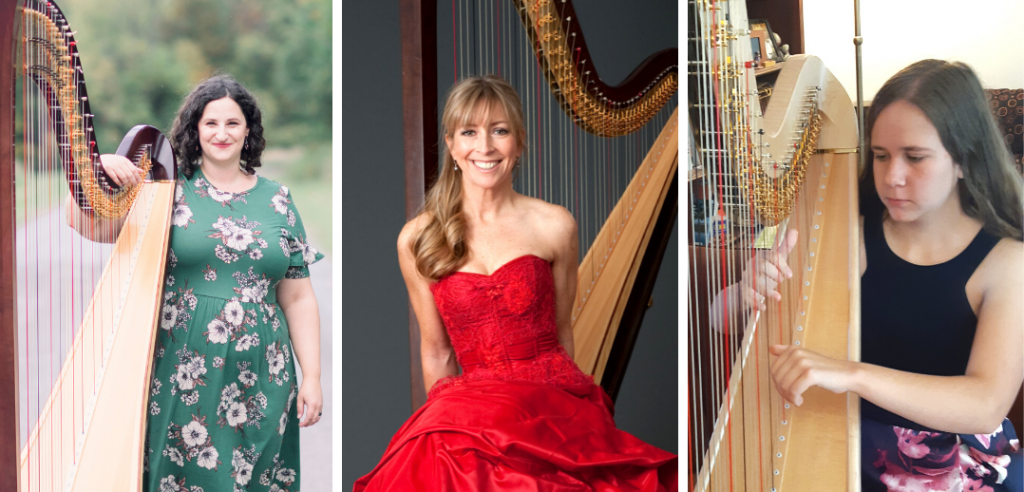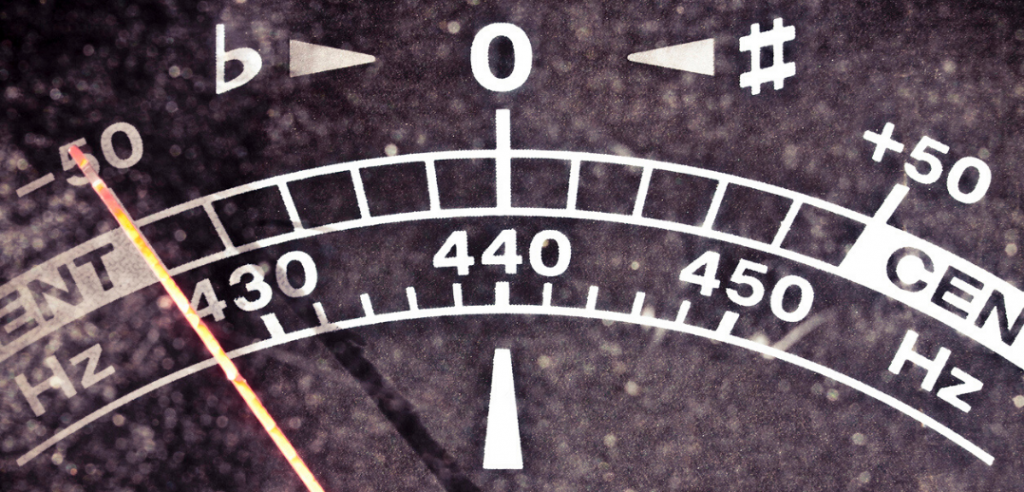Pictured clockwise from top left: author Angela Schwarzkopf, Elizabeth Hainen, Justine Azar, Ginetta Baril, Elizabeth Volpé Bligh, Sebastian Gobbels, Joan Holland, Katherine, Siochi, and Kathleen Hopkins
—by Angela Schwarzkopf
I often describe my first harp camp experience as the life changing moment in my harp development. At that time, I was in university and the only harpist in my program. Although that offered me a lot of opportunity within the school, it also shielded me from the vastness of the harp community. Halfway through my undergraduate studies, I decided to attend a summer harp camp. I picked up my copy of Harp Column and looked through the summer programs to find the right camp for me. What followed was an amazing exposure to the world of harp; I met harpists from around the world and studied with new teachers who showed me different thoughts and ideas. I was inspired to raise my level, practice more, think more, and work more. I returned home from the camp a new harpist.
My years as a harp camp student, and now a faculty member of a summer program, have taught me that there are key elements to having a successful harp camp experience. I talked to some current students, as well as some of my fellow harp camp instructors, about how to get the most out of your harp camp experience.
Picking your program
When picking your summer program, you should consider what type of program benefits you the most. Philadelphia Orchestra principal harpist and Curtis Summerfest Harp Colony teacher Elizabeth Hainen advised students to think of what type of program interests them. “Will it be more of a camp, orchestra festival, or masterclass focus? Programs with non-musical activities will give you the ability to enjoy more free time with your peers, while a program, like the one I direct at Curtis Summerfest, will be strictly musical and more intense.” In addition to the type of program, you should also consider the playing level, age range of the participants, and the level of intensity at the program.
Getting ready for camp
Many summer programs have a list of ensemble pieces you should learn before you arrive. When talking with harp camp instructors and students, one piece of advice was consistent—come with your ensemble music prepared. Whether your program is orchestra focused or has a harp ensemble, you want to make sure that you’ve done your homework so you aren’t playing catch-up the entire time.“ Learning my music well before the program allowed me to focus on specific things regarding playing with an orchestra, like how to adjust my sound to the orchestra, being able to look at the conductor, blending with the other harp, etc.,” says Justine Azar, who attended the National Youth Orchestra of Canada in 2018. Not every program has the same expectations. Gianetta Baril, who runs the Canadian International Summer Harp Institute, says she does not expect students to have everything 100-percent prepared. In fact, she encourages students to explore efficient learning techniques when they are at the institute. Make sure you know the expectations of your program before you attend so that you can get the most out of your experience.
Organization is an important aspect of your preparations. Elizabeth Volpé Bligh, who has taught at various summer programs, advised students to be organized with their music by keeping it all in a folder or binder, sorting out page turns, writing cues, and listening to your music prior to camp.
Sebastian Gobbels, a student from the Young Artist’s Harp Seminar, advises you to be well rested before attending your camp. Summer programs are often very busy, and having plenty of energy will help you thrive during your short time at camp.
During harp camp
Keep an open mind, suggests Interlochen Arts Camp instructor Joan Holland. “Develop and maintain an openness to all that will be new,” she says. “[You’ll be] surrounded by players from different backgrounds and training and [you] will receive instruction that is unfamiliar in its delivery.”
Katherine Siochi, who has both attended and taught at the Young Artist’s Harp Seminar, suggests focusing your practice during the program on everything you have learned in lessons and masterclass to help retain all the new information before you leave.
Don’t forget to take time to make friends and get to know the faculty. These friendships and contacts are ones that will last a lifetime. I still have friends that I made from my first time at harp camp, and it is so inspiring to see where life takes each harpist.
Post camp
Returning to reality after being away at harp camp can be hard. Stay in touch with faculty and friends made at your program. “[They] are amazing sources for encouragement and inspiration through your life journey as a person and as a harpist,” says student Kathleen Hopkins. Don’t forget to take all that you learned from the camp and share it with your teacher at home so that you can continue to grow and develop from your summer experience. •






